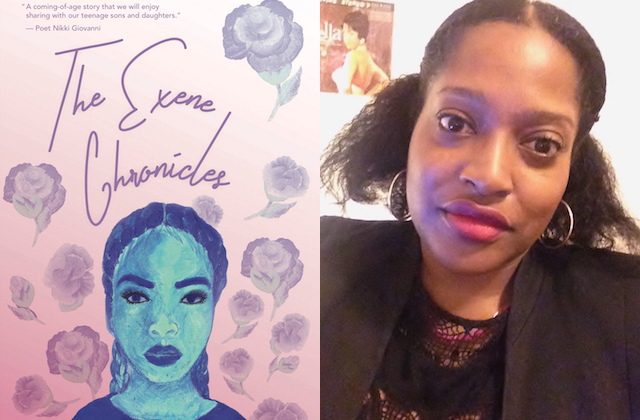Before the rise of Afropunk, Black kids who liked punk rock or any of its derivative forms had to find their own paths into the underground music scene. Despite the genre’s roots in multicultural rebellion, venturing into that world came with the risk of White supremacist violence and sexism.
Writer Camille A. Collins draws on her memories of that time for "The Exene Chronicles," her debut young adult novel released on Tuesday (September 25). The story follows Lia, a Black teenager who leaves her San Diego suburb for the chaos of Los Angeles’ 1980s punk rock subculture to investigate her best friend’s disappearance.
"The Exene Chronicles" takes its name from Exene Cervenka, the frontwoman of veteran punk act X, whose presence hangs over Lia’s journey. Colorlines spoke to Collins about the book and the lessons she hopes readers take from it.
How much does "The Exene Chronicles" reflect your own life?
This story is my most autobiographical, in that I grew up in the same community as Lia, and my friends and I were captivated by X. But I took those true aspects of my life as the jumping off point for a fictional story.
What do you want to show readers with this book?
Part of my inspiration was the joy of that time. It was our first taste of independence and everything seemed so easy. For instance, my friends and I used to get money for concert tickets by babysitting, and even at 12 or 13, our community was small and safe so we could make that money. So it was a great time.
But in retrospect, for me, there was an element of fear in Southern California at that time. There were hate groups and skinheads of the Nazi brand, rather than just regular punk rockers. That was a legitimate fear for me. I never had any bad experiences as a kid at these shows, but I still felt that fear. Elements of Southern California are very conservative and right-wing, and I wondered, Am I going to get into trouble, or meet up with the wrong people? I wrote the book 10 years ago—it’s just taken a while to get published—but now, we see these things in the news. At the time, it was an underlying worry. So I wanted to capture that mix of happiness and concern.
What messages do you hope your audience takes away from this story?
I really think this book can be for anybody, but people have to understand and appreciate its point of view. The experiences we have as African Americans and other minorities aren’t always fully understood. I called the book "The Exene Chornicles" because there is a semi-autobiographical element to the novel and I was really passionate about the band X and Exene as a kid.* But even though I mention this White artist, people have to put their expectations aside and experience this young Black girl’s point of view.
I don’t have a lesson for everybody, but I’d say the true punk aesthetic—the idea of doing things yourself and holding yourself to your own standards, for your life choices or art—is still really powerful.
*Post has been updated.
